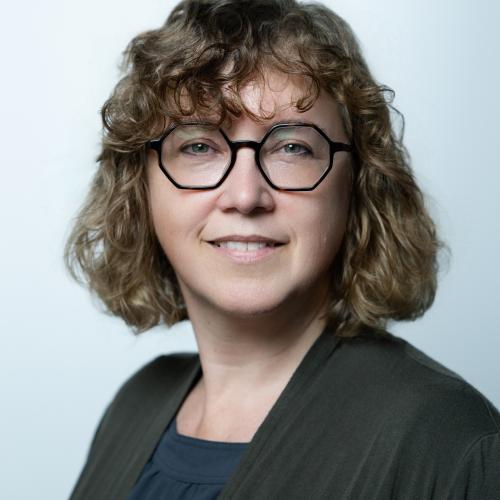The effective use of data storytelling could positively impact public library managers' approaches to data collection and their advocacy for libraries, according to Associate Professor Kate McDowell. However, cultural roadblocks to data storytelling must be addressed for the process to be successful, McDowell discovered in a recently completed study.
McDowell discusses her findings in the Public Library Quarterly article, "Library Data Storytelling: Obstacles and Paths Forward." This work is the result of her research project, "Data Storytelling for Community Organizations," which received a $20,000 seed grant from The Center for Social and Behavioral Science. For her project, McDowell interviewed librarians and invited them to participate in a questionnaire, ranking exercise, and workshop discussions.
"Data storytelling could be very valuable for libraries as they communicate their mission and impact and as they advocate for resources. Unfortunately, there are some obstacles that need to be addressed before this will be possible," she said.
Librarians' fear of data as unfamiliar or overwhelming, their fear of their story appearing fictionalized, and the connected barriers of time, tools, and training are among the obstacles.
"In order to make the most of the time and effort of data collection, library data must become story. By prioritizing storytelling as a practice that precedes data storage—or simply story before storage— we can better understand what we are accomplishing," McDowell said.
McDowell gives the example of a library that needs to update its computers because of old hardware. The librarians have data on how often the computers crash and how much it would cost to replace them. However, this data alone does not provide a compelling story.
"We must think about what the data mean. In this case, working computers mean the ability for people to apply for jobs. The story of even one person who applied for and got a job because of library computers is much more compelling as a justification for the expense of updating the computer lab. The more people that have applied for jobs using the resources, the more compelling the story," she said.
McDowell researches and publishes in the areas of storytelling at work, social justice storytelling, and what library storytelling can teach the information sciences about data storytelling. She holds both an MS and PhD in library and information science from Illinois.
